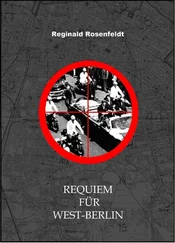Isaiah Berlin - Russian Thinkers
Здесь есть возможность читать онлайн «Isaiah Berlin - Russian Thinkers» весь текст электронной книги совершенно бесплатно (целиком полную версию без сокращений). В некоторых случаях можно слушать аудио, скачать через торрент в формате fb2 и присутствует краткое содержание. Год выпуска: 0101, Жанр: Старинная литература, на русском языке. Описание произведения, (предисловие) а так же отзывы посетителей доступны на портале библиотеки ЛибКат.
- Название:Russian Thinkers
- Автор:
- Жанр:
- Год:0101
- ISBN:нет данных
- Рейтинг книги:3 / 5. Голосов: 1
-
Избранное:Добавить в избранное
- Отзывы:
-
Ваша оценка:
- 60
- 1
- 2
- 3
- 4
- 5
Russian Thinkers: краткое содержание, описание и аннотация
Предлагаем к чтению аннотацию, описание, краткое содержание или предисловие (зависит от того, что написал сам автор книги «Russian Thinkers»). Если вы не нашли необходимую информацию о книге — напишите в комментариях, мы постараемся отыскать её.
Russian Thinkers — читать онлайн бесплатно полную книгу (весь текст) целиком
Ниже представлен текст книги, разбитый по страницам. Система сохранения места последней прочитанной страницы, позволяет с удобством читать онлайн бесплатно книгу «Russian Thinkers», без необходимости каждый раз заново искать на чём Вы остановились. Поставьте закладку, и сможете в любой момент перейти на страницу, на которой закончили чтение.
Интервал:
Закладка:
though it grew more nationalist, often took on a grimmer tone. It
favoured self-consciously harsh, anti-aesthetic, exaggeratedly materialistic, crude, utilitarian forms, and continued to be self-confident and optimistic, inspired by the later writings of Belinsky rather than
Herzen. There is not, even at the lowest point-during the 'seven year
long night' after 1 848-that flatness and apathy which is so noticeable
in France and Germany during these years. But this was bought at
the price of a deep schism within the intelligentsia. The new men,
Chemyshevsky and the left-wing populists, are divided by a much
wider gap from the liberals, whether of the west or of their own
country, than any of their predecessors. In the years of repression,
1 848-56, lines of demarcation grew much more real; frontiers between
the Slavophils and the Westerners, which had hitherto been easily
crossed and re-crossed, became dividing walls; the framework of
frie:tdship and mutual respect between the two camps-'the Janus with
two faces but one heart'-which had made it possible for radicals like
Belinsky and Herzen to argue furiously but in an atmosphere of deep
regard, in some cases even of affection, with Katkov or Khomyakov
or the Aksakov brothers, no longer existed. When Herzen and
Chicherin met in London in 1 8 59, Herzen saw in him not an
opponent but an enemy, and with reason. There was an even more
painful process of polarisation in the radical camp itself. The quarrel
between the moderates of Kolokol (Tht Btl/) and the St Petersburg
radicals in the 6os grew bitter. Despite the continued existence of a
common enemy-the Imperial police state-the old solidarity was
fatally broken. Chernyshevsky's meeting with Herzen in London was
a stiff, awkward and almost formal affair. The gulf between what
became the left- and the right-wing oppositions grew steadily wider;
and this despite the fact that the left wing regarded western ideals far
more critically than before, and like the right looked for salvation to
native institutions and a specifically Russian solution, losing faith in
universal remedies, compounded out of liberal or socialist doctrines
'
imported from the west.
Thus it came about that, when at last direct western influence had
again reasserted itself in the form of the orthodox Marxism of the
Russian social democrats of the 1 89os, the revolutionary intelligentsia
was unbroken by the collapse of liberal hopes in Europe in 1 849-5 1 .
6
RUSSIA AND 1 8 48
Its beliefs and principles were preserved from contamination by the
very hostility of the regime, and remained free from the danger,
prevalent among their old allies in the west, of growing soft and blurred
as a result of too much successful compromise, mingled with disillusion.
Consequently, during the time of almost universal malaise among
socialists, the Russian left-wing movement retained its ideals and its
fighting spirit. It had broken with liberalism out of strength and not
out of despair. It had created and nurtured its own tough-minded,
radical, agrarian tradition, and it was an army ready to march. Some
of the factors responsible for this trend-the independent development
of Russian radicalism as it was born in the stonns of 1 848-9-may be
worth recalling.
Tsar Nicholas I remained all his life obsessed by the Decembrist
rising. He saw himself as the ruler appointed by Providence to save
his people from the horrors of atheism, liberalism and revolution; and
being an absolute autocrat in fact as well as in name, he made it the
first aim of his government to eliminate every form of political
heterodoxy or opposition. Nevertheless, even the severest censorship,
the sharpest political police, will tend to relax its attention to some
degree after twenty years of relative quiet; in this case the long peace
had been disturbed only by the Polish rebellion, with no signs of
serious internal conspiracy anywhere, and no greater dangers to the
regime th;m a few small and localised peasant disorders, two or three
groups of radical-minded university students, a handful of westernising
professors and writers, with here and there an odd defender of the
Roman Church like Chaadaev, or an actual convert to Rome like the
eccentric ex-professor of Greek, the Redemptorist Father Pecherin.
As a result of this, in the middle 40s the liberal journals, such as
Ottchestvmnye zapiski (Notts of tht Fatherland) or Sovrtmmnik (Tht
Conttmporary), took courage and began to print, not indeed articles in
open opposition to the government-with the existing censorship and
under the sharp eye of General Dubelt of the political police, this was
out of the question-but articles ostensibly concerned with conditions
in western Europe or in the Ottoman Empire, and written in an
apparently dispassionate manner; but containing, for those who could
read between the lines, vague hints and concealed allusions critical of
the existing regime. The centre of attraction to all progressive spirits
was, of course, Paris, the home of all that was most advanced and
freedom-loving in the world, the home of socialists and Utopians, of
Leroux and Cabet, of George Sand and Proudhon-the centre of a
7

RU SSIAN T H I N K E R S
revolutionary art and literature, which i n the course of time were
bound to lead humanity towards freedom and happiness.
Saltykov-Shchedrin, who belonged to a typical liberal circle of the
40s, says in a famous passage of his memoirs:•
In Russia, everything seemed finished, sealed with five seals and
consigned to the Post Office for delivery to an addressee whom it
was beforehand decided not to find; in France, everything seemed
to be beginning . . . our (French] sympathies became particularly
intense towards 1 848. With unconcealed excitement we watched
all the periptteias of the drama provided by the last years of Louis
Philippe's reign. With passionate enthusiasm we read The History
of Ten Years, by Louis Blanc . . . : Louis Philippe and Guizot,
Duchatel and Thiers-these men were almost personal enemies,
perhaps more dangerous than even L. V. Dubelt.
The Russian censorship had evidently not at this period reached its
maximum severity; the censors were themselves at times inclined
towards a timid kind of right-wing liberalism; in any case they were
often no match for the ingenuity and, above all, unending persistence
of the 'disloyal' historians and journalists, and inevitably they let
through a certain amount of 'dangerous thought'. Those zealous
watchdogs of autocracy, the editors Bulgarin and Grech, who acted
as virtual agents of the political police, often denounced such oversights in private reports to their masters. But the Minister of Education, Count Uvarov, author of the celebrated patriotic triple watchword 'Orthodoxy, autocracy and the people', who could scarcely be accused of liberal leanings, was nevertheless anxious not to acquire
the reputation of a bigoted reactionary, and turned a blind eye to the
less blatant manifestations of independent writing. By western
standards, the censorship was exceptionally severe; Belinsky's letters,
for example, make quite plain the extent to which the censors managed
to mutilate his articles; nevertheless, liberal journals contrived to
survive in St Petersburg, and that in itself, to those who remembered
Читать дальшеИнтервал:
Закладка:
Похожие книги на «Russian Thinkers»
Представляем Вашему вниманию похожие книги на «Russian Thinkers» списком для выбора. Мы отобрали схожую по названию и смыслу литературу в надежде предоставить читателям больше вариантов отыскать новые, интересные, ещё непрочитанные произведения.
Обсуждение, отзывы о книге «Russian Thinkers» и просто собственные мнения читателей. Оставьте ваши комментарии, напишите, что Вы думаете о произведении, его смысле или главных героях. Укажите что конкретно понравилось, а что нет, и почему Вы так считаете.










